Here’s a Mondegreen I heard last night.
A. My daughter thinks I’m a taxidermist.
B. What like stuffed animals?
A. No, a taxi service.
Here’s a Mondegreen I heard last night.
A. My daughter thinks I’m a taxidermist.
B. What like stuffed animals?
A. No, a taxi service.
My friend Michèle (photographer of the bee-flies) is helping me with my garden. Here is the result of today's work on one small area.
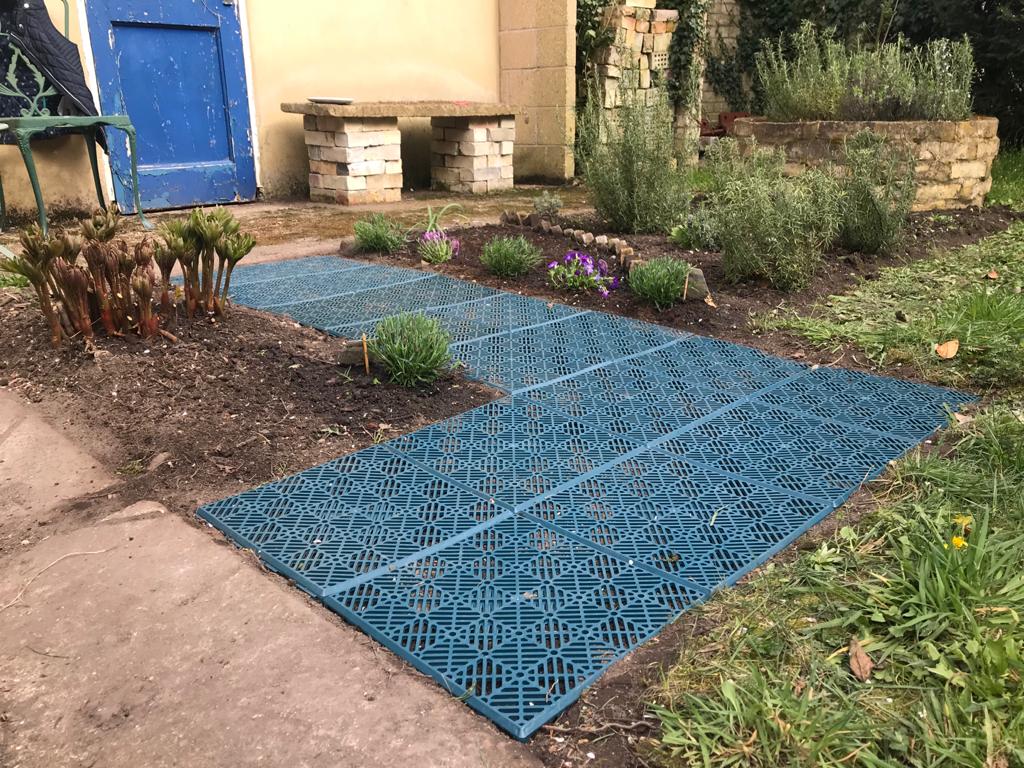
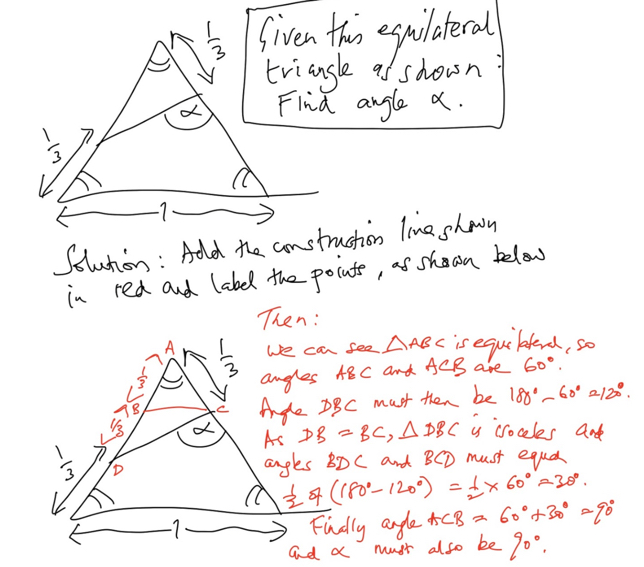
Please don’t show me
Anything nasty
It might make me squeam.
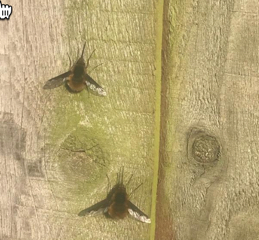

The sweet miraculous power of a Robin
Turning birdseed into song.
Anon
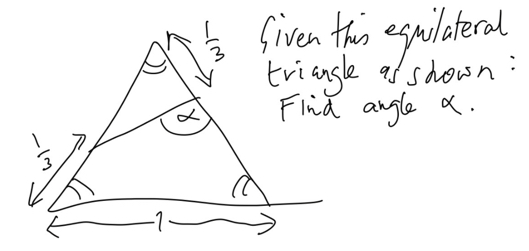
You’ve heard of the silver cigarette case that stopped a bullet.
https://www.bbc.co.uk/news/uk-england-derbyshire-50302592
In a modern twist on this, a local tradesman fell off a ladder, but luckily his iPhone fell out of his shirt pocket and reached the ground first. He landed with his head on the phone rather than the concrete, and was spared from head injury.
Rather a nice story I think. I haven’t made it up.
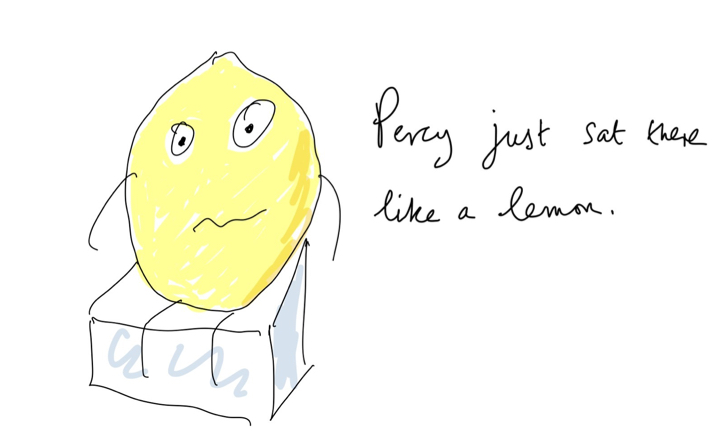
I turned up my nose.
Now I’ve turned up my toes.
Presenter: Your chosen subject?
Contestant: Physical geography.
Presenter: Time starts now. What name is given to a route over or through a mountainous region?
Contestant: Pass.
A besom is what we think of as a witch’s broom, a bundle of twigs lashed to a handle. The word is from the Old English besema which was once the common word for a broom.
However the twigs often came from the shrub called broom and over time the name of the plant was transferred to the long-handled brush, which is now usually called a broom rather than a besom.
Broom is cognate with bramble and comes from a root that originally seems to have meant any kind of thorny bush.
This plot in the national Botanical Gardens of Wales is set aside for flowers that will encourage pollinating insects. Photographed in September 2018.
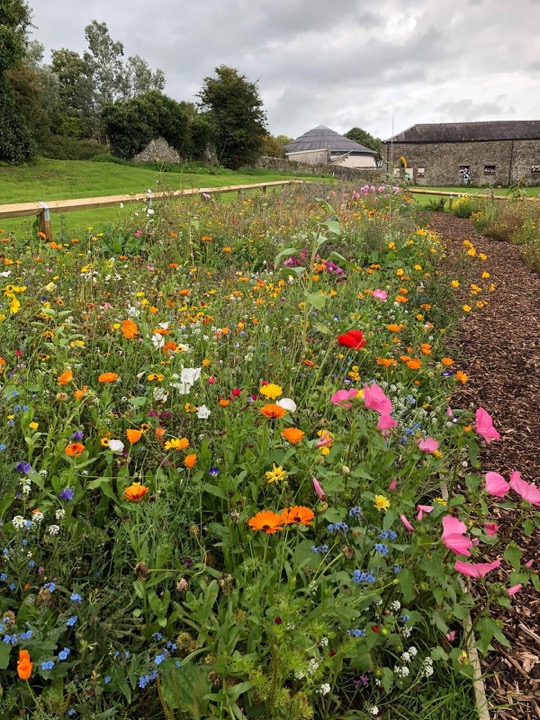
Burglars who distract their victims by playing stringed instruments. That’s robbery with violins.
Unusual. Ouzo is traditionally mixed with water. But the soda was amazing, it made the drink longer but more ouzo-y, it really brought out the aniseed flavour and didn’t drown the drink at all.
I believe that once Greek country folk used to make Ouzo at home and as well as aniseed would add Wormwood, the plant Artemisia, named for the goddess Artemis. From her name came also Absinthe, a famous green coloured drink, very popular into the early 20th century, but then illegalised in France and subsequently elsewhere, on the premise that it was mad, bad, and dangerous to drink, addictive and psychoactive, because of the wormwood. However absinthe had a lot of adherents in the creative world, see
https://en.wikipedia.org/wiki/AbsintheFollowing more recent recent research Absinthe is legal again. I bought some but I wasn’t sure it was my favourite. I’m good with Ouzo and Soda.
Στην υγειά σας!
PS the name Wormwood is from the same origin as Vermouth.
I tried some fermented apples, now I’m worried about cider effects.
My cousin took this picture of a young male Great Bustard.
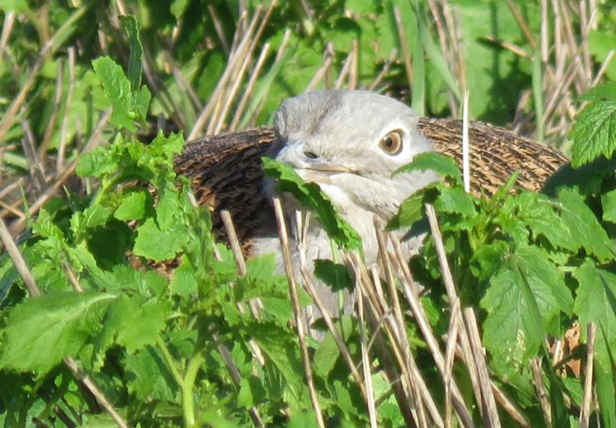
These birds are amongst the heaviest flying birds, possibly the heaviest. An adult male may be a metre tall, have a wing span of 2+ metres, and weigh in at up to about 20 kg.
The bird is classified as vulnerable; although it is widespread only about 40,000 survive. It lives on open grasslands and once had a British population, but was hunted to extinction in this country by the middle of the 19th century.
However the bird has been successfully reintroduced, from 2007 I believe, and there is now a breeding population of about 40. My cousin has been watching one of them and was able to get this shot, I presume of its offspring.
You can read more about the reintroduction programme here and here is an image from the same site.

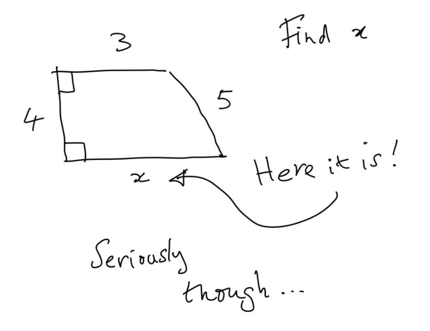
In ground-breaking research announced earlier today, scientists think they have detected video signals from an alien star system.
The signals, though faint, appear to be a drama set in some sort of domestic situation. A member of the team told our reporter, “This proves that where there’s life there’s soap”.
What English word is the most difficult to pronounce? It’s hard to say.
So we’ll go no more a roving,
So late into the night.
Though the heart be still as loving
And the moon be just as bright.
For the sword outwears its sheathe,
And the soul wears out the breast.
And the heart must pause to breathe,
And love itself have rest.
I’m learning this poem by Lord Byron and this is as far as I got. I thought posting it here (from memory!) might help to bed it down. Is it right?
Tomorrow I will learn Stanza 3 hopefully.
Wheatear
A small perching bird with a white rump. I don’t think you’d typically see one in your garden but I have been to places, such as heaths in Norfolk, where they were everywhere. When they fly away the white backside is very conspicuous and it’s generally thought that the bird was originally called a “white arse” for that reason. A mixture of “folk etymology” - an intuitively appealing idea about a word origin but not based on recorded evidence - and dislike of coarse words (mealy-mouthedness in fact!) morphed this into wheatears and then people felt this was a plural, so we got wheatear.
Compare with pea; there were originally no peas but there was pease pudding (“Pease pudding hot, pease pudding cold, pease pudding in the pot, nine days old”); this sounds like a plural, so back-formation led to pea.
What jokes can you tell over the internet? Onliners.
Isohyet
A line on a climate map, connecting points of equal rainfall.
This blog might contain posts that are only visible to logged-in users, or where only logged-in users can comment. If you have an account on the system, please log in for full access.